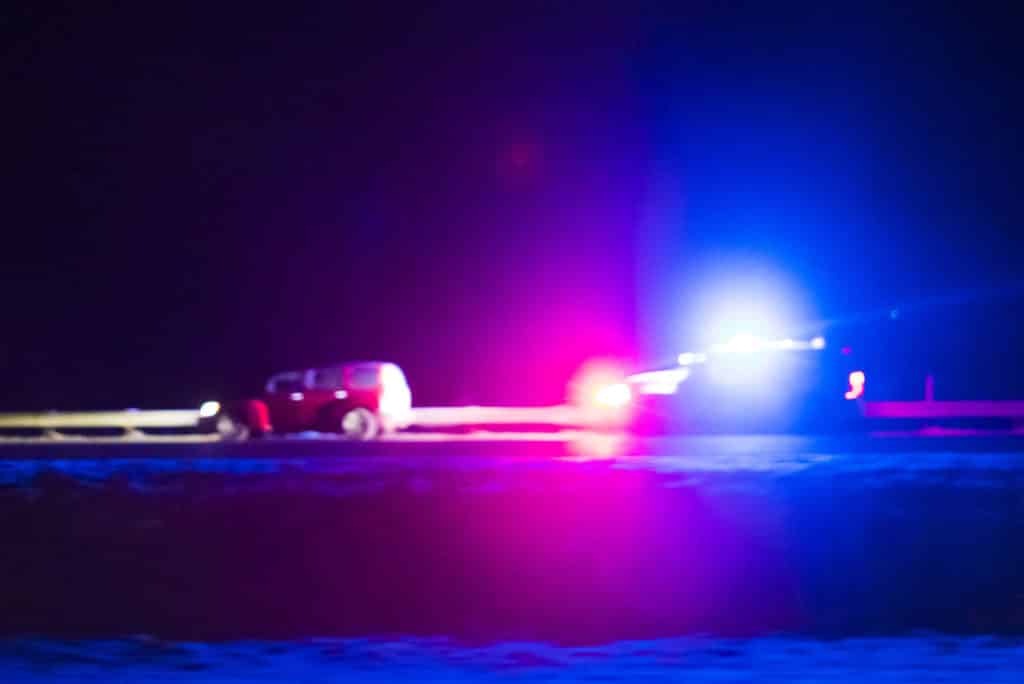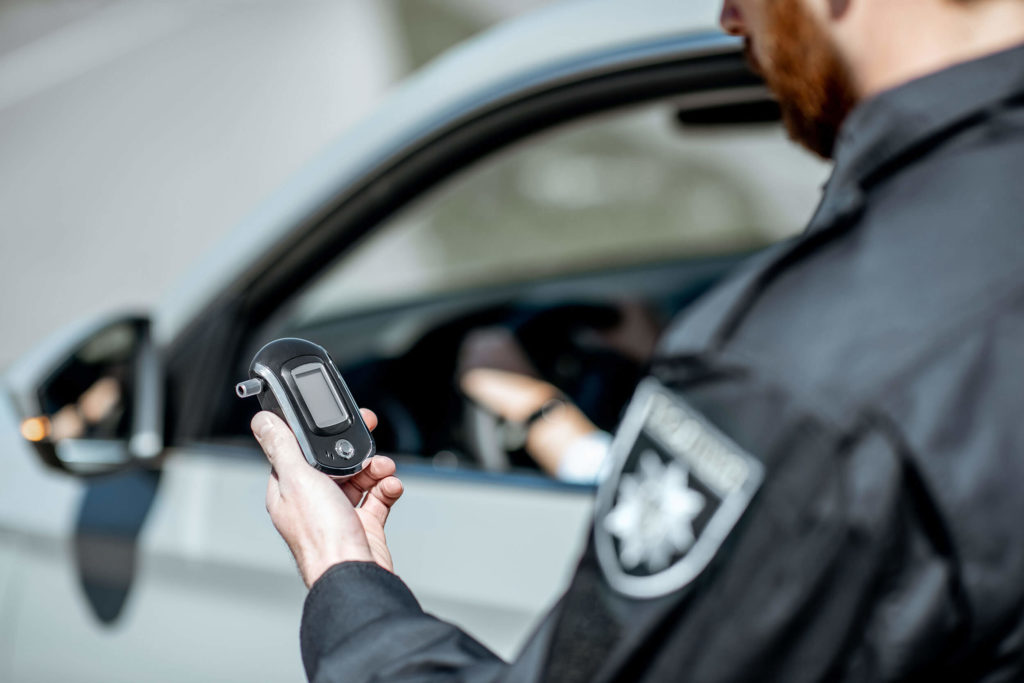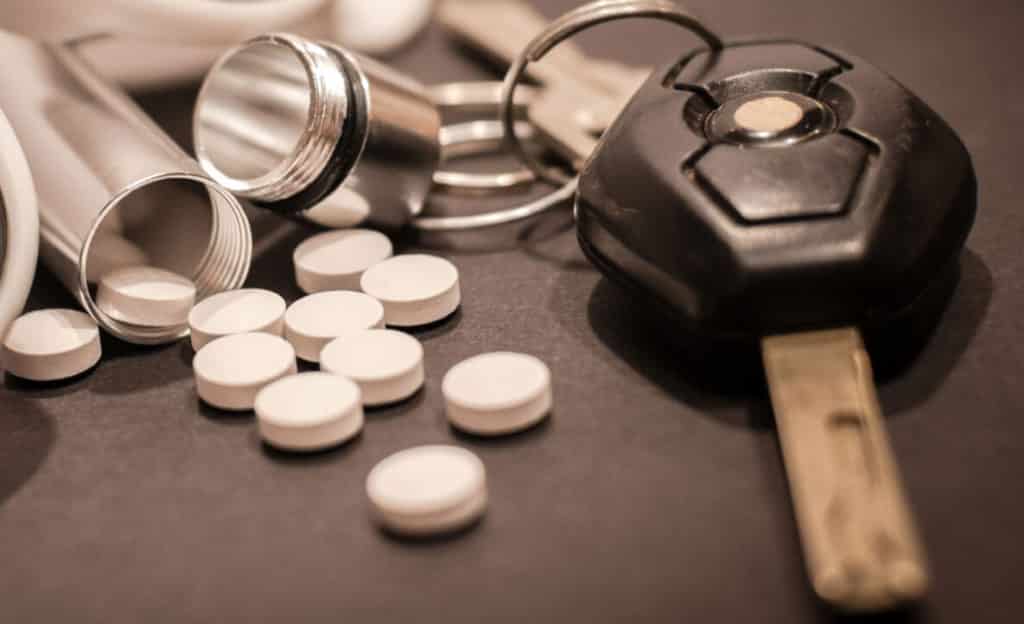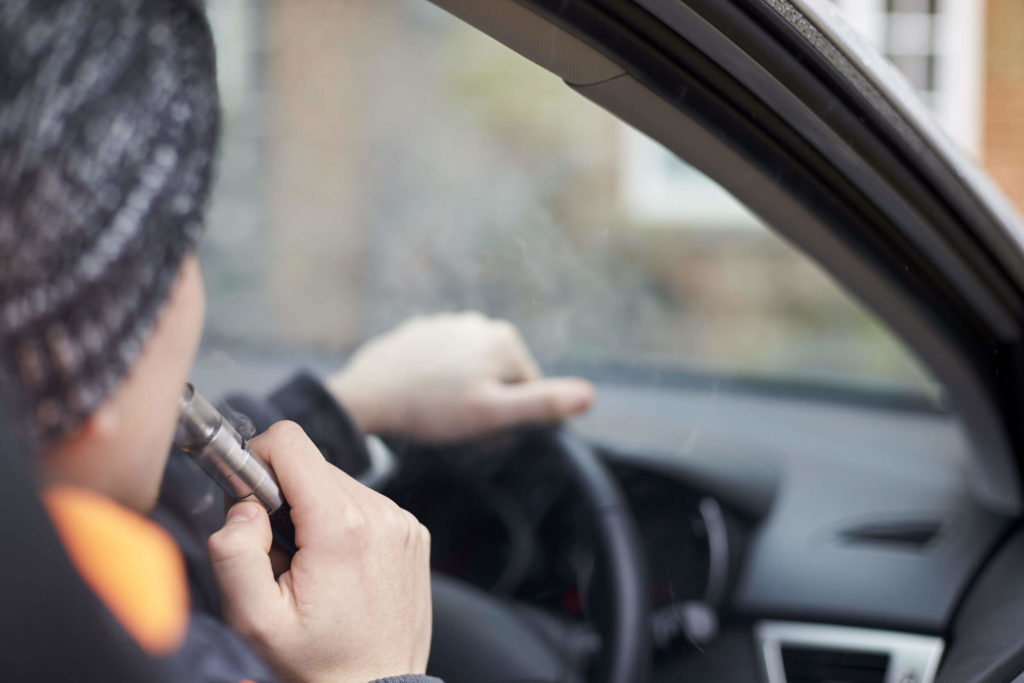
When it comes to driving under the influence (DUI) in Pennsylvania, many people are unaware of the various legal issues involved in a DUI case. For that reason, I have compiled a list of Frequently Asked PA DUI Questions to help you understand your rights and legal defenses if the police file DUI charges against you.
Do I need a lawyer for a DUI?
Yes. Although you are allowed to represent yourself in the DUI case, it is almost always a bad idea.
The DUI laws, possible defenses, and penalties can be difficult to understand if you do not have a legal background. An experienced DUI attorney can advise you if you have a legal defense to the DUI charge or if there are other ways to avoid a DUI conviction.
Under what circumstances can the police legally pull over a vehicle in Pennsylvania?
Under Pennsylvania law, the police must have probable cause or reasonable suspicion to believe that you have violated the Pennsylvania Motor Vehicle Code. In addition, the police can stop your car if they have reasonable suspicion that you are operating the vehicle while under the influence of alcohol, drugs, or both.
Are DUI Checkpoints Legal in PA?
Not always. PA DUI checkpoints must meet specific legal requirements under Pennsylvania law, including:
- The DUI checkpoint vehicle stop must be brief and may not involve a physical search of the driver
- Police must provide sufficient warning of the date, time, and location of the DUI checkpoint
- The decision to conduct a DUI checkpoint must be administratively approved
- A DUI checkpoint must be at a time and place where intoxicated drivers are likely to be traveling
- The decision regarding which vehicles the police stop must be administratively determined and based on predetermined objective standards
Your DUI case may be dismissed through a Motion to Suppress Evidence if the police fail to follow the above DUI checkpoint guidelines. Read more about Pennsylvania DUI checkpoints.
Can I be charged with DUI in Pennsylvania if my vehicle is not moving?
Yes. If the police charge you with DUI, Pennsylvania law does not require your vehicle to be in motion. Furthermore, the law requires that you be in “actual physical control” of the vehicle’s movement.
For example, the police would consider you to be in actual physical control of the vehicle’s movement if you are seated in the driver’s seat of a parked car while the engine is running. Finally, I have won many DUI cases by proving that the person sitting on the driver’s side had switched seats with the person driving the car due to a medical emergency or drug or alcohol intoxication.
What field sobriety tests can the police ask me to perform during a DUI investigation?
Local Pennsylvania police officers and state troopers will usually ask you to perform one of the 3 standardized field sobriety tests approved by the National Highway Traffic and Safety Administration (NHTSA). These tests are:
- The horizontal gaze nystagmus (HGN) test
- The walk-and-turn test
- The one-leg stand test
What is a non-standardized field sobriety test?
A non-standardized field sobriety test is a field test without a standardized way of instructing, demonstrating, scoring, and performing. Importantly, the NHTSA does not recognize non-standardized field sobriety tests.
Non-standardized field sobriety tests are considered scientifically unreliable tests for driver impairment clues. As a result, the police may have difficulty proving that you are guilty of DUI if they relied on some non-standardized field sobriety tests when they arrested you.
What non-standardized field sobriety tests can the police ask me to do during a DUI vehicle stop?
Local Pennsylvania police officers and Pennsylvania State Troopers may ask you to perform non-standardized field sobriety tests alone or in addition to standardized field sobriety tests. Non-standardized field sobriety tests include:
- The counting backward test
- The finger count test
- The finger-to-nose test
- The alphabet test
- The Romberg test (feet together, head back, eyes closed for 30 seconds)
Do I have the right to speak to a lawyer before I agree to give a breath or blood sample to the police?
No. Under Pennsylvania and federal law, you do not have a federal or state right to counsel before deciding whether to submit to chemical testing for DUI. However, the police may consider a request to speak to an attorney before chemical testing as a refusal.
A refusal to submit to chemical testing will result in a minimum 1-year suspension of your Pennsylvania driving privileges.
Will my driver’s license be suspended if I refuse a roadside portable breath test?
No. PennDot will not suspend your license for refusing to take a portable breath test. Portable breath tests (PBT), also known as preliminary breath tests, are used by the police to determine the presence of alcohol during a DUI investigation.
In many cases, the police use a PBT at the scene of the DUI traffic stop to establish one of the elements of probable cause for a DUI arrest.
Unlike desktop breath test devices, portable breath tests are not calibrated and maintained for accuracy. Also, preliminary breath test results are not admissible as evidence of DUI at trial.
Do I have to take a blood or breath test if the police stop me for a DUI in Pennsylvania?
No. However, Pennsylvania has an implied consent law stating that anyone obtaining a Pennsylvania driver’s license must agree to chemical testing if the police investigate the driver for suspicion of DUI. The implied consent law does not apply to portable breath tests.
Depending on the police department, the police may ask you to provide blood at a hospital or a police station. Also, the police may ask you to give breath samples using a desktop breath testing device at police headquarters.
A driver who refuses chemical testing faces a driver’s license suspension of at least 1 year. Finally, the district attorney can use your refusal to submit to chemical testing as evidence of your guilt in a DUI trial.
Do I have the right to choose the type of chemical testing if the police arrest me for DUI in Pennsylvania?
No. Under Pennsylvania’s Implied Consent law, a driver does not have the right to choose which form of chemical testing they will submit to during a DUI investigation. The police will consider a driver’s failure to agree to the chemical testing a refusal.
Under Pennsylvania law, a chemical test refusal results in a minimum 1-year suspension of their Pennsylvania operating privilege.
What is the legal limit for an adult to be considered driving under the influence of alcohol in Pennsylvania?
The legal limit for individuals over the age of 21 is a BAC of .08% or greater.
What is the legal limit for a minor to be considered driving under the influence of alcohol in Pennsylvania?
The legal limit for minors (under the age of 21) is a BAC of .02% or greater.
What is the legal limit for a commercial vehicle driver to be considered driving under the influence of alcohol in Pennsylvania?
The legal limit for commercial vehicle drivers is a BAC of .04% or above.
Can the police charge me with DUI even if my blood alcohol level tested below the legal limit?
Yes. The police can charge you with DUI even if your blood alcohol level is below the legal limit of .08% for adults and .02% for minors. In addition, the police must conclude that you were under the influence of alcohol to the degree that made you incapable of safe driving.
These cases are very difficult for the police to prove in court.
What happens after the police arrest me for DUI in Pennsylvania?
The police will transport you to police headquarters or a hospital if they have probable cause to believe that you are driving under the influence. In most situations, the police will ask you to agree to take either a breathalyzer or a blood test.
Breathalyzer results are available immediately. Hospital personnel will draw blood from you. Also, blood test results typically take up to three weeks to return from the hospital, an outside medical facility, or the crime lab. In most cases, the police will release you from custody after the chemical testing is complete.
What happens after the police release me from custody after a DUI arrest in Pennsylvania?
The police will file DUI charges if the chemical test results show a reading above the legal limit for alcohol or if it shows the presence of drugs or both. Also, the police will charge you with a DUI if they believe you were incapable of safe driving, even if your BAC was below the legal limit.
Finally, you will receive a summons to appear for a preliminary hearing in the court that is located in the area where the vehicle stop occurred.
What should I do after the police arrest me for driving under the influence in Pennsylvania?
Most people find the Pennsylvania judicial system to be overwhelming to navigate on their own. It is essential to contact an experienced lawyer who has an extensive understanding of Pennsylvania’s DUI laws and DUI defenses.
I am available 24/7 at (215) 752-5282 for free DUI consultations. I can also be reached through the website contact form for an immediate response.
How to find the best DUI lawyer
You must hire a lawyer with extensive experience defending individuals charged with DUI in Pennsylvania. Importantly, my legal practice focuses on DUI defense.
In addition, the lawyer representing you must be able to see the case from your perspective and address your concerns about the resolution of the charges.
As a result, you must be able to communicate with your lawyer both by phone and in person as your case progresses through the court system. Accordingly, I am always available to meet clients in my office or speak over the phone to discuss the status of their cases.
I will be directly involved in every aspect of the DUI case if you hire me. Contact me for a free evaluation of your charges or call me at (215) 752-5282.
Do I need a lawyer for my DUI preliminary hearing?
Yes. It is almost never a good idea to represent yourself at your PA DUI preliminary hearing. In most cases, a lawyer should defend you at the preliminary hearing. Under Pennsylvania law, the judge presiding over the preliminary hearing will decide if sufficient evidence exists for the DUI charges to be held for trial.
An experienced DUI lawyer can speak to the police and the prosecutor on your behalf before the hearing. Above all, a knowledgeable DUI lawyer also has a thorough understanding of the Pennsylvania rules of evidence as well as of the most effective legal arguments to make if a hearing is held in your DUI case.
Most importantly, a DUI attorney may be able to get your DUI charges dismissed or reduced at the preliminary hearing. Read more about 5 successful DUI preliminary hearing strategies.
Can I be charged with DUI in Pennsylvania if my blood system contains medication that my doctor has prescribed?
Yes. In some circumstances, you can be charged with DUI even if the only substance detected in your system is medication that your doctor prescribed. Pennsylvania’s “drugged driving” law makes it illegal to drive, operate or be in actual physical control of a vehicle if your system contains any amount of Schedule I or non-prescribed Schedule II or III controlled substances or their metabolites.
Can I be arrested for DUI in Pennsylvania if my blood system contains only marijuana?
Yes. Pennsylvania’s Drug Act classifies marijuana (cannabis) as a Schedule I controlled substance. Pennsylvania’s drugged driving law makes it illegal to drive, operate or be in actual physical control of a vehicle if your system contains any amount of a Schedule I controlled substance or its metabolite.
For instance, you can be charged with a DUI for marijuana even if you smoked the marijuana hours or the day before you were arrested.
Is a DUI a Felony in Pennsylvania?
Yes, in specific cases. The police charge the following DUI cases as a third-degree felony:
- All fourth offense DUIs within the last 10 years, regardless of the penalty tier
- A third offense DUI within the previous ten years in the highest penalty tier (third tier)
- All DUIs where the driver has a prior conviction for homicide by vehicle while DUI
- A first or subsequent DUI and the driver has a previous conviction for homicide by vehicle while DUI
- A DUI with a minor under 18 years of age in the car and the driver has two or more prior DUI convictions
Can I be arrested for DUI in Pennsylvania if my blood system contains medically prescribed Cannabis?
Yes. Pennsylvania’s Drug Act classifies marijuana (cannabis) as a Schedule I controlled substance. Pennsylvania’s drugged driving law makes it illegal to drive, operate or be in actual physical control of a vehicle if your system contains any amount of a Schedule I controlled substance or its metabolite.
The law applies to medical marijuana that a doctor or other medical professional has prescribed.
What possible penalties will I face if I am convicted of DUI in Pennsylvania?
Pennsylvania DUI penalties vary and depend on the case’s circumstances. DUI sentencing factors include:
- Your blood alcohol level
- The presence of drugs in your system
- Prior DUI convictions within the last 10 years of your arrest
- Whether the DUI involved death or bodily injury to another person
- Whether you agreed to take a blood or breath test for blood alcohol content
Except for a first-time general impairment offense not involving property damage, bodily injury, or death, all Pennsylvania DUI convictions will result in a mandatory jail sentence and fines. House arrest and restrictive probation are sentencing options for eligible individuals facing a mandatory jail sentence due to a DUI conviction.
Get more information on current Pennsylvania DUI penalties.
How is the 10-year Lookback Period Calculated for Prior DUI Convictions?
Any DUI convictions occurring within the last 10 years of the date of the current DUI offense will count as a prior conviction and increase the penalties for the current DUI charge.
For example, a conviction can be the date you pleaded guilty to DUI in court or the date that a judge or jury found you guilty of DUI.
Does an ARD for DUI Count as a Prior Conviction to Increase my DUI Sentence?
No. An Accelerated Rehabilitative Disposition (ARD) for DUI will not be considered a previous offense for DUI sentencing. To read more about the recent Pennsylvania Supreme Court decision that established this law, read: PA Supreme Court: ARD Can’t be Used to Enhance DUI Sentence
What happens when the police charge a minor with DUI?
The police will file DUI charges against a minor in juvenile court. Also, a juvenile can use the same legal defenses against a DUI charge as an adult. In juvenile court, a judge will decide if a minor is guilty of DUI charges after an adjudication hearing.
Your lawyer may resolve the DUI case without an adversarial hearing. For example, the district attorney may allow your child to enter a first offender program, such as a consent decree or informal adjustment. However, a judge may impose various conditions as part of the disposition of the case, including:
- Placement in a juvenile facility
- Probation
- Drug and alcohol treatment
- Community service
In addition, PennDot may impose a driver’s license suspension if the juvenile carries a learner’s permit, junior driver’s license, or unrestricted driver’s license. Finally, underage drivers may avoid a license suspension if they complete a juvenile court diversion program.
What consequences will I face if the police file my Pennsylvania underage DUI case in adult court?
An underage driver facing a DUI in adult court in Pennsylvania must complete a drug and alcohol assessment before the trial. Also, the driver may face a mandatory minimum jail term and other conditions, including drug and alcohol treatment as part of a parole or probationary sentence.
The underage DUI offender may also face a mandatory driver’s license suspension. Fortunately, many people may avoid severe penalties by qualifying for the Accelerated Rehabilitative Disposition (ARD) program for their DUI cases.
Not every county is offering ARD for first-time DUI offenders due to a recent court decision where the court declared that ARD participation does not count as a prior conviction to increase the punishment in subsequent DUI cases.
What legal defenses are possible in a DUI case?
The availability of a legal defense to a Pennsylvania DUI charge depends on your case’s facts and evidence. Some of the most common DUI defenses are:
- Challenging the legality of the initial vehicle stop by the police
- Challenging the probable cause for the DUI arrest
- Challenging the legality of a DUI checkpoint
- Challenging the reliability of the field sobriety test results
Additional defenses to driving under the influence
- Challenging the reliability of the blood or breath test results
- Proving that you were not operating the vehicle
- Proving that you were not in actual physical control of the vehicle
View other PA DUI defenses that you may use to fight a DUI charge.
Can I challenge the accuracy of breath or blood test results in a Pennsylvania DUI case?
Yes. A DUI lawyer can contest the accuracy of the breath or blood results. A successful legal challenge to blood or breath test results can be the difference between an acquittal or a conviction for DUI.
For example, a DUI attorney can dispute the reliability of a breath test result if the breath test operator is not certified to operate the device. In addition, a DUI attorney can object to the accuracy of a breath test if the police do not properly calibrate the breathalyzer machine.
Also, the court can exclude breath test results if they are outside the acceptable margin of error. Finally, a judge may prohibit the introduction of a DUI blood test results in a DUI trial if the laboratory failed to follow the required procedures in collecting, preserving, and analyzing the blood sample.
Review other PA DUI chemical testing and defenses that a DUI lawyer may use in your case.
Are first-time offender programs available for someone charged with DUI in Pennsylvania?
Yes. An individual charged with DUI in adult court may be eligible for Accelerated Rehabilitative Disposition (ARD). ARD is a pre-trial diversion program available to individuals with no prior record who the police charge with DUI.
In most counties, completion of the ARD program requirements will result in dismissal of the charges and expungement of the case’s records. The juvenile court system offers first-time offender programs such as a consent decree or informal adjustment for minors facing DUI charges.
Some Pennsylvania Counties are no longer offering ARD for first-time offenders due to a recent Pennsylvania Supreme Court ruling declaring that ARD cannot be considered a prior conviction to increase the penalty for a future DUI.
Will the court expunge my record if I complete the Pennsylvania ARD program for my DUI case?
Yes. In most Pennsylvania counties, a judge will automatically sign an Order of Expungement when your ARD probation ends. To qualify for record expungement, you must complete all the conditions of the ARD program, including the payment of court costs and completion of community service.
However, a small number of counties require that you or your lawyer file the expungement petition after you have completed the terms of your ARD agreement. I can explain the Pennsylvania criminal record expungement process to you.
Is it possible to receive a criminal record seal for a DUI conviction in Pennsylvania?
Yes. Some DUI convictions are eligible for a criminal record seal in Pennsylvania. Significantly, a criminal record seal would prevent employers, landlords, and others from accessing your prior DUI conviction.
In addition, the DUI conviction must be for an ungraded offense or a 2nddegree misdemeanor. Also, the law requires that 10 years have passed since you completed your sentence for the DUI offense. Also, a criminal record seal is not available for individuals convicted of certain crimes or persons with 4 or more misdemeanor convictions.
Can I continue driving after being convicted of 1st offense DUI in Pennsylvania?
Yes, in the majority of cases. The answer will depend on the severity of your current DUI charge and your criminal and driving history. For example, a person convicted of a first-offense general impairment DUI with a BAC between .08% and less than .10% will not lose their Pennsylvania driving privileges.
Fortunately, Pennsylvania DUI law makes the ignition interlock limited license (IILL) available to individuals convicted of most first-offense DUI charges.
Drivers approved for an IILL must install an ignition interlock device on their vehicle. Individuals who satisfy PennDot’s ignition interlock license requirements retain their ability to drive after a DUI conviction.
Can I serve my DUI sentence on house arrest?
Yes. Montgomery County and many other Pennsylvania Counties offer house arrest placement for eligible offenders facing a jail sentence due to a DUI conviction. Each county has a pre-trial screening procedure to determine your eligibility for the program.
Most house arrest programs require that you comply with specific rules and regulations and wear a global positioning system (GPS) bracelet for your jail sentence.
The Bucks County Department of Corrections terminated the Bucks County House Arrest Program in 2021. In its place, the Bucks County Adult Probation and Parole Department began a home detention program for DUI and driving under suspension cases. Learn more about the Bucks County DUI Restrictive Probation Program.
Montgomery County no longer offers house arrest or restrictive probation to individuals who live outside of Montgomery County, Pennsylvania.
How will a Pennsylvania DUI conviction affect my status as a licensed professional?
A DUI arrest and conviction in Pennsylvania can seriously impact your ability to maintain your professional license. The reporting requirements vary depending on the type of license you hold.
In some situations, the licensing agency may take administrative action to suspend or revoke your professional license after a DUI arrest or conviction. Please refer to the DUI and Professional Licensure section for more information about specific professional licensure consequences.
Speak to an Affordable DUI Attorney
Contact me if the police have charged you or a loved one with DUI in Bucks County, Montgomery County, Chester County, Delaware County, or the neighboring Pennsylvania Counties. I offer a free DUI lawyer consultation to review your case and discuss all possible driving under the influence defenses.
Phone lines are open twenty-four hours daily at (215) 752-5282. Call today for a free initial consultation or fill out the confidential contact form for immediate response.







